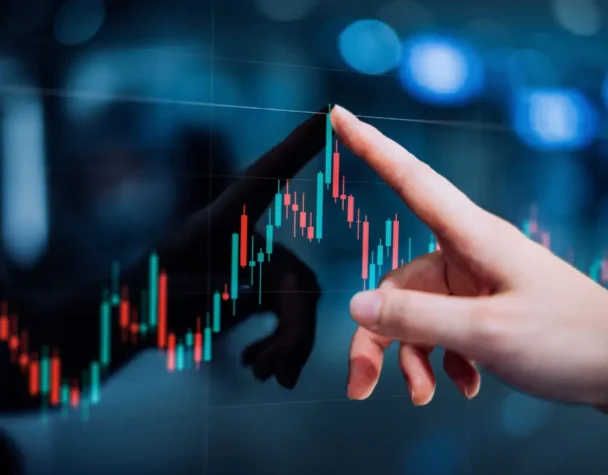
Trump’s Sweeping Tariffs Spark Global Market Turmoil and Inflation Fears
Thu, April 03, 2025Liberation Day” Tariffs Trigger Financial Shockwaves
On April 2, 2025, former President Donald Trump unveiled a bold new trade initiative dubbed “Liberation Day,” imposing sweeping tariffs aimed at boosting domestic manufacturing and confronting global trade imbalances. At the heart of this policy is a 10% universal import tax on all goods entering the United States, along with sharply increased tariffs on key trade partners.
Countries hit hardest include China (34%), Japan (24%), India (26%), Taiwan (32%), and Vietnam (46%), with the European Union facing a 20% tariff. A notable inclusion is a 25% levy on all imported automobiles, a move expected to disrupt the global auto supply chain.
The announcement immediately rattled markets. U.S. futures nosedived, with S&P 500 futures down more than 3.5% and Nasdaq 100 futures plunging 4.5%. Major tech giants such as Apple and Amazon experienced significant sell-offs, underscoring investor concerns over potential supply chain disruptions and rising costs.
Asian markets were hit even harder. Japan’s Nikkei 225 sank 3.4%, and Australia’s ASX 200 fell over 2%, reflecting global unease over the growing threat of trade fragmentation. As investors sought safe havens, gold prices surged to record highs, and the Japanese yen strengthened, a clear sign of mounting financial anxiety.
For further market reaction details, see The Guardian’s live business coverage.
International Response and Economic Fallout
World leaders responded swiftly and critically. Australia’s Prime Minister Anthony Albanese condemned the tariffs as “not the act of a friend,” indicating rising diplomatic tensions even among traditional allies. South Korea vowed to mobilize all available resources to counter the fallout, while EU officials signaled plans to intensify free trade agreements with other nations to mitigate their exposure to U.S. policies.
Economists fear the tariffs will trigger higher consumer prices and renewed inflationary pressure in the U.S., complicating the Federal Reserve’s ongoing efforts to stabilize the economy. There’s also widespread concern that countries impacted by these tariffs will retaliate, potentially spiraling into a new global trade war that stifles growth across both developed and emerging economies.
As noted by FT.com, Trump’s move could “reshape global commerce” and revive debates over protectionism versus globalization, a fault line that’s been growing since the pandemic.
Looking ahead, analysts will be watching for retaliatory tariffs and shifts in global trade alliances, as markets brace for continued volatility. The long-term impact of these aggressive trade measures could redefine economic diplomacy and the structure of global supply chains for years to come.

